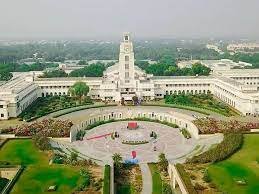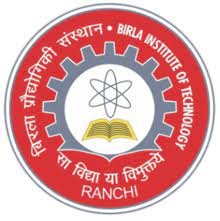Future Scope & Benefits of M.Tech in Thermal Engineering
An M.Tech in Thermal Engineering offers a dynamic and promising future, with numerous opportunities for specialization and career advancement. Graduates of this program are equipped with specialized knowledge and skills related to heat transfer, fluid mechanics, energy systems, and thermodynamics. Here's an in-depth exploration of the future scope and benefits of pursuing an M.Tech in Thermal Engineering:
Future Scope
An M.Tech in Thermal Engineering offers a future-focused on energy efficiency, sustainability, and innovation. Graduates can excel in fields like renewable energy, power generation, automotive technology, and environmental sustainability. Their expertise is in high demand as industries seek efficient energy solutions and reduced environmental impact.
1. Energy Sector: The energy sector offers extensive opportunities for thermal engineering professionals. As the world focuses on renewable energy sources, thermal engineers play a crucial role in developing, optimizing, and maintaining energy systems. This includes working on solar power plants, geothermal energy projects, and advanced heating and cooling systems.
2. Power Generation: Thermal engineers are in high demand in the power generation industry. They work on designing and improving power plants, both conventional and renewable, to maximize energy efficiency and minimize environmental impact. The future of power generation is likely to include advanced technologies such as supercritical and ultra-supercritical power plants.
3. Environmental Sustainability: With growing concerns about environmental sustainability, thermal engineers are instrumental in developing eco-friendly solutions. They work on projects related to carbon capture and storage (CCS), waste heat recovery, and green building design to reduce energy consumption and greenhouse gas emissions.
4. Automotive Industry: Thermal engineers find opportunities in the automotive sector, where they work on designing efficient engines and cooling systems. With the shift toward electric vehicles, thermal management of batteries and electric drivetrains becomes a critical area of expertise.
5. Research and Development: The field of thermal engineering is continuously evolving, and research and development play a significant role. Graduates can engage in cutting-edge research, contributing to the development of new materials, technologies, and systems that enhance energy efficiency and sustainability.
6. Consulting: Many thermal engineering professionals choose consulting careers, providing expertise to various industries. They offer insights into optimizing thermal systems, improving energy efficiency, and complying with environmental regulations.
7. Aerospace and Defense: Thermal engineers in the aerospace and defense sectors work on projects related to aircraft propulsion, thermal protection systems, and advanced cooling technologies for electronics and equipment.
8. Manufacturing and Process Industries: Thermal engineers are essential in manufacturing and process industries. They optimize manufacturing processes, ensure product quality, and reduce energy consumption in facilities.
9. Academia and Research: Pursuing advanced degrees, such as a Ph.D., can lead to careers in academia and research. Graduates can become educators, teaching the next generation of engineers, while also conducting research in various aspects of thermal engineering.
Benefits
The benefits of pursuing an M.Tech in Thermal Engineering include job security, competitive salaries, global relevance, innovation opportunities, contributions to sustainability, complex problem-solving, leadership potential, diverse industry exposure, and personal fulfillment through meaningful work. This program equips graduates for dynamic careers in an ever-evolving energy landscape.
1. Job Security: The demand for thermal engineering professionals remains robust, ensuring job security even in fluctuating economic conditions. Industries that rely on energy efficiency and sustainability consistently seek their expertise.
2. Competitive Salaries: Graduates with an M.Tech in Thermal Engineering often command competitive salaries due to their specialized knowledge and the critical role they play in optimizing energy systems.
3. Global Relevance: Thermal engineering expertise is globally relevant, offering opportunities to work on projects and collaborate with professionals from around the world.
4. Innovation: Thermal engineers are at the forefront of innovation, working on projects that address some of the world's most pressing challenges, including clean energy and environmental sustainability.
5. Contribution to Sustainability: Professionals in this field have the satisfaction of contributing to sustainable practices and reducing the environmental impact of industries.
6. Complex Problem-Solving: Thermal engineers engage in complex problem-solving, making their work intellectually stimulating and fulfilling.
7. Leadership Potential: With expertise in optimizing energy systems, thermal engineers often assume leadership roles within organizations, driving innovation and efficiency.
8. Diverse Industry Exposure: The skills acquired in thermal engineering are transferable across industries, allowing professionals to explore diverse fields of interest.
9. Personal Fulfillment: Graduates find personal fulfillment in careers that have a meaningful impact on society and the environment.
In conclusion, an M.Tech in Thermal Engineering opens doors to a future filled with opportunities, innovation, and the chance to make a positive impact on energy efficiency and sustainability. Graduates can choose from diverse career paths and industries, making it a valuable and rewarding field of study.
 2 Years
2 Years
 Post Graduate
Post Graduate
 Engineering
Engineering














 back
back

